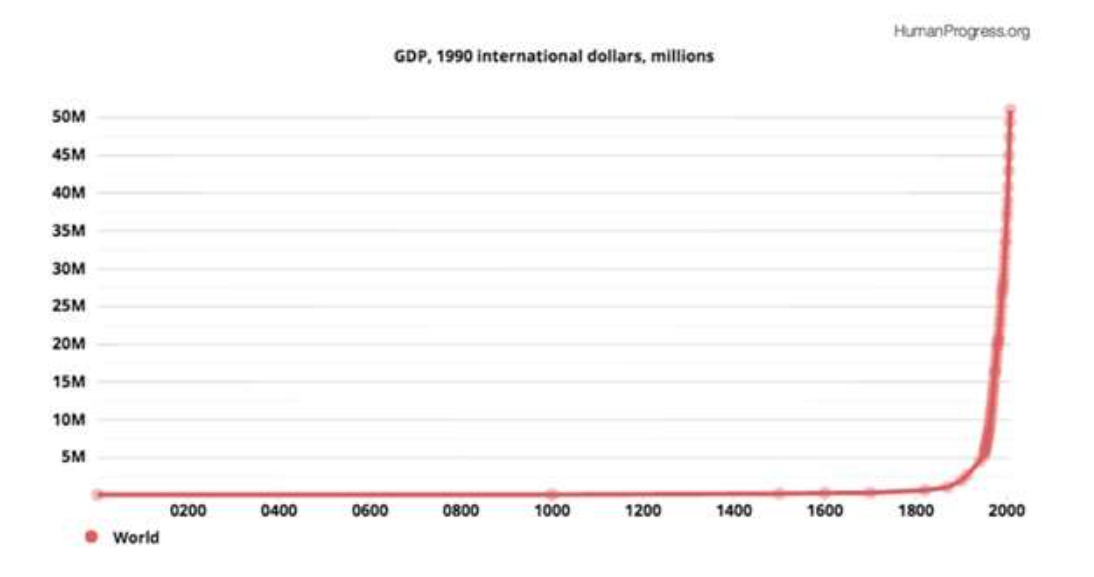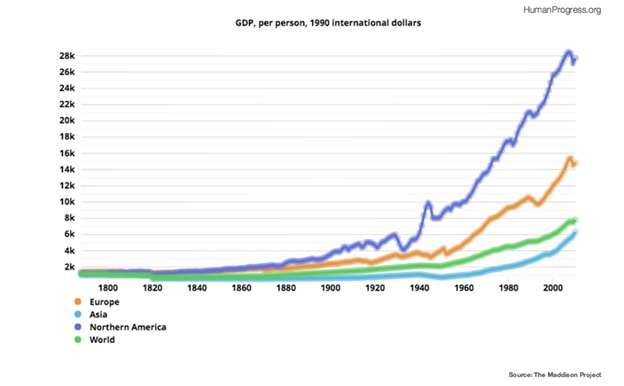Yes it can be easily disproved. One of the more drastic disproofs is The Most Important Graph in the World. For thousands of years there was no meaningful increase in wealth in the entire world. Every means and method of societal arrangement was tried. People bounced around on the ragged edge of starvation, often below that edge.
Then, near the end of the 18th century, capitalism was invented. The result was an explosion of wealth. It is an exponential increase such that it is quite possible that within 20 years we could see the near eradication of absolute poverty. No other arrangement of society has ever done anything to lift people out of poverty. Only capitalism has done so, and it has done so world wide for 2 centuries.

The notion that capitalism can only enrich people at other's expense is wrong. Massively and clearly wrong. One might almost call it culpably wrong. Capitalism enriches the people who engage in voluntary trade. The well-known win-win trade arises only in voluntary free exchange. If it isn't win-win then people won't voluntarily engage in it. If they are not voluntarily engaging in it, then it is only going to be win-win by sheerest accident.
The notion that inequality didn't exist before capitalism, or that it does not exist today in non-capitalist countries, is just silly. The notion that racism only exists or arose only where capitalism exists is also just silly. Satraps and kings and warlords exist and existed long before capitalism.
====
Correlation does not equal causality. Yes. But at no point did I claim that.
All of history produced no enrichment. None. Zero. No form of government, no form of society, no arrangement of people produced anything but stagnation. Freedom arose and POOF! Freedom arose in another country and SHAZAM! Freedom is predicted to produce enrichment in other countries. Freedom is instituted and BIG VIOLINS! Wealth follows.
Put not your faith in princes becaue princes produce stagnation. Then global substitute for "princes" every other form of government or society organization and note that 2000 years of history clearly show they don't raise people out of poverty. Then note that people who have been raised out of poverty were so done by capitalism. Not by some unknown mechanism but explitly and openly by capitalism. Win-win trades openely arrived at with force banned. People doing what their own self interest dictates. People free to choose their own path. The rising tide raises all boats.
At the same link is the next graph. The interesting thing here is not that world per-capita GDP is increasing exponentially. Which it is. It is that it is increasing fastest where there is more freedom.
We do not have to guess how this happened. We can go ask the people involved in it. Freedom means they can choose to participate in trades that are good for them. Lack of freedom pushes them off these choices. It is entirely open and clear. Capitalism produces these things as predicted. In the manner predicted.


